Introduction
Natural Climate Solutions, also called Nature-Based Solutions, are actions that reduce emissions and increase carbon storage in forests, farms, grasslands and wetlands, while providing a host of additional benefits for people and the environment.
Practices that could be included are actions like encouraging farming techniques that retain carbon in the soil, such as planting cover crops; conserving and replanting forests; conserving and restoring coastal wetlands; and reducing the loss of natural areas, planting trees, and providing parks in communities.
Not only do these efforts help address climate change – they can improve water quality, prevent natural disasters like wildfire, drought, and flooding, protect wildlife habitat, and provide opportunities for hiking and fishing. Best of all, these solutions are cost effective, and can often improve local economies.
Below you can explore how people in Wisconsin are benefiting from implementing nature-based solutions in their community through a diverse set of resources from USN4C members and others, including blog articles, videos, comprehensive reports, and more.
Blog Articles

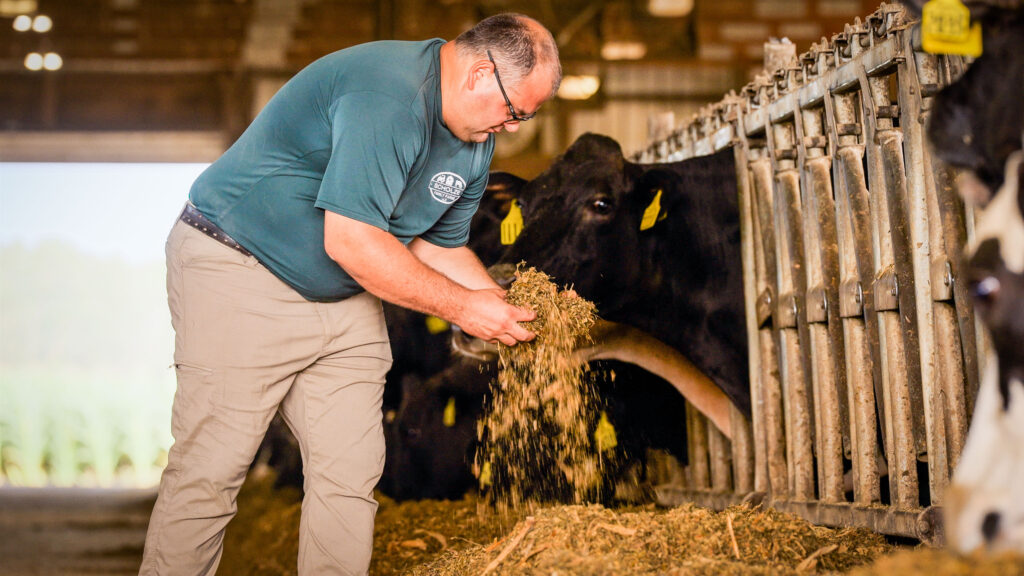
© Alita Films
U.S. Nature4Climate/The Nature Conservancy Article: Collaborative Program Drives Climate Solutions on U.S. Dairy Farms

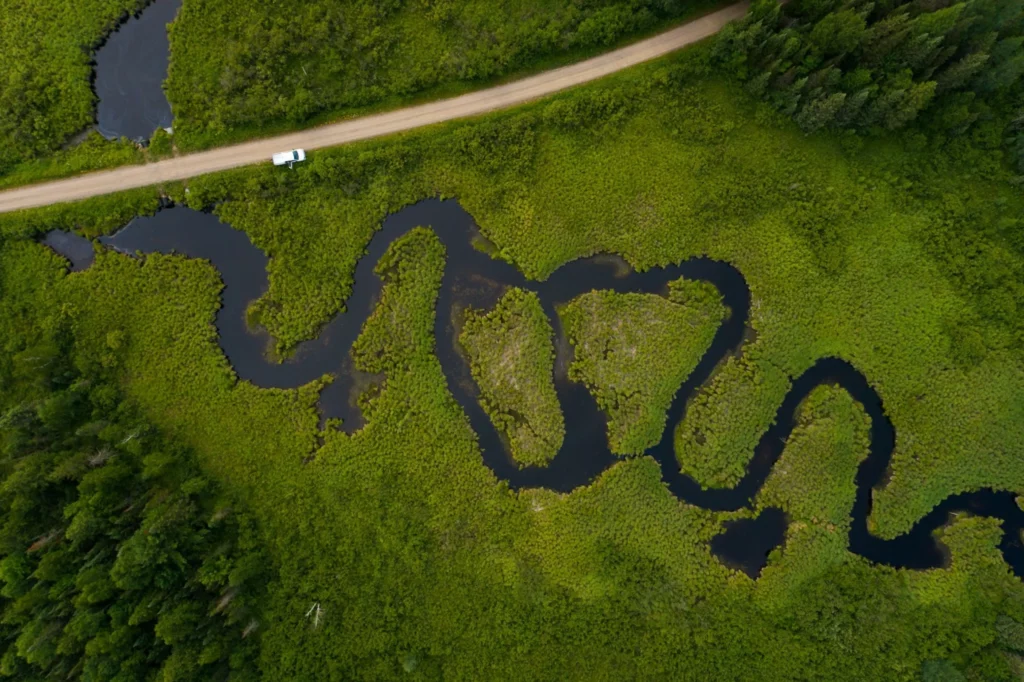
Photo by Jay Brittain for LTA
Land Trust Alliance Article: Wisconsin Forest Project Will Provide Clean Water and Help Fight the Climate Crisis


© Patrick Flood Photography LLC for TNC
The Nature Conservancy Article: Wisconsin Farmers Leading on Conservation
- The Nature Conservancy Article: How Wetlands, Grasslands and Other Natural Gems are Solving Wisconsin’s Biggest Challenges
- SCIENCE: Environmental Defense Fund Article: New Research Could Help Resource Managers Improve the Health and Resilience of the Mississippi River Basin
Forests:
- The Nature Conservancy Article: Great Lakes Northwoods
- Theodore Roosevelt Conservation Partnership Nature-based Solutions Interactive Map: Wisconsin – Midwest Driftless Area Stream Restoration
- USDA Forest Service Fact Sheet: Forest Legacy 2024 Funded Projects
- National Association of Conservation Districts Press Release: NACD Announces Urban and Community Conservation Grants for 35 Recipients
- U.S. Nature4Climate Article: Seeing the City for the Trees
Agriculture:
- SCIENCE: Journal of Human Sciences & Extension Study (University of Tennessee-Knoxville & Doane University): A Midwest Perspective on Biochar Integration in Extension
- Environmental Defense Fund Business Article: Understanding the Costs and Returns of Cover Crops: What Farmers Need to Know
- Environmental Defense Fund Business Summary: Financial Impacts of Cover Crops in Minnesota and Wisconsin
- SCIENCE: Carbon Balance and Management Study (Conservation International): Maximizing Tree Carbon in Croplands and Grazing Lands While Sustaining Yields
- American Farmland Trust Article: A Tornado in February: Implementing Farmland Protection to Counter Climate Change
- Environmental Defense Fund Growing Returns Blog Article: Lenders Want To Support Farmers’ Conservation Efforts. Here’s How Their Executives Can Help
- Environmental Defense Fund EDF+ Business Blog Article: Lender Perceptions and Actions on Conservation Agriculture
- U.S. Nature4Climate/American Farmland Trust Article: The Math is in: Soil Health Practices Produce Real Return on Investment
Wetlands:
- Pew Charitable Trusts Article: Change in Federal Protections for Wetlands Poses Resilience Challenge for States
Reports

Environmental Defense Fund Report: Lender Perceptions and Actions on Conservation Agriculture
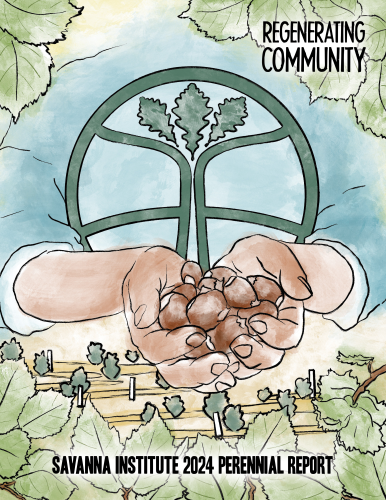
Savanna Institute Report: Perennial Report 2024 – Regenerating Community
Videos & Podcasts
U.S. Nature4Climate Video: Dairy Feed in Focus – Scholze Family Farms
The Nature Conservancy Video: Wisconsin Farmer Profiles: Steve Carpenter
Savanna Institute Video: Savanna Institute’s Campus in Spring Green, Wisconsin | Agroforestry Demonstration Farm Tour
Explore More!
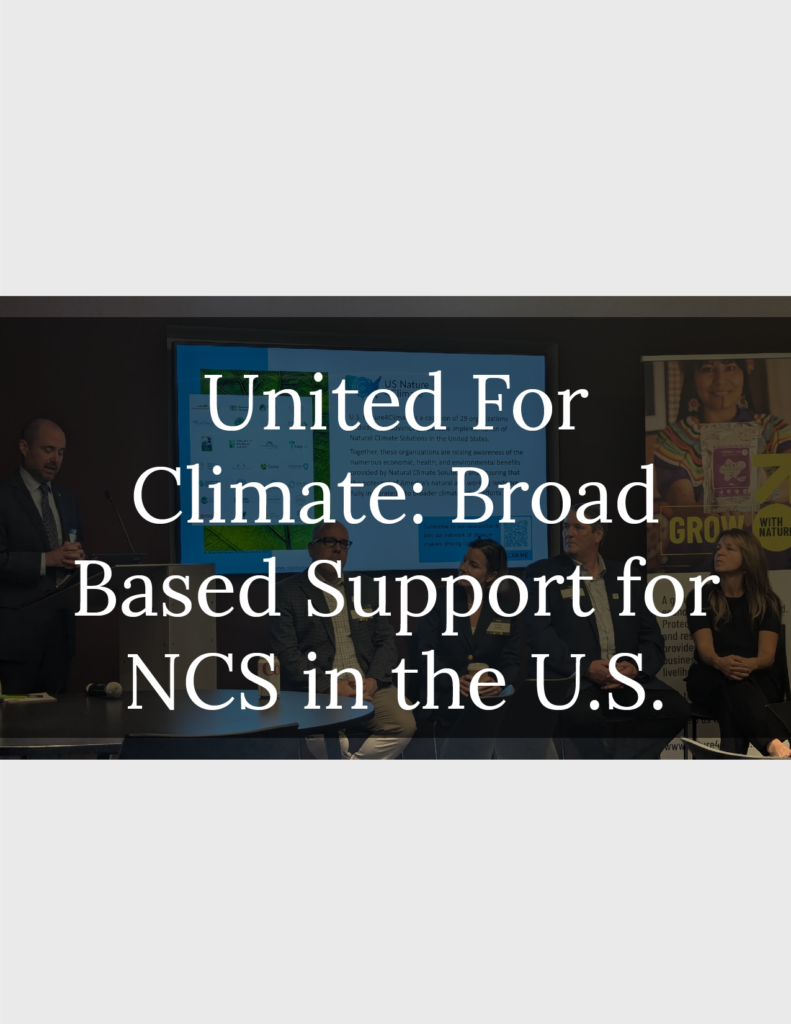
A new national survey conducted by U.S. Nature4Climate shows that voters across party lines support natural climate solutions more than ever, suggesting fertile ground for bi-partisan cooperation and consensus-building, opening up new avenues for climate action. Learn more.
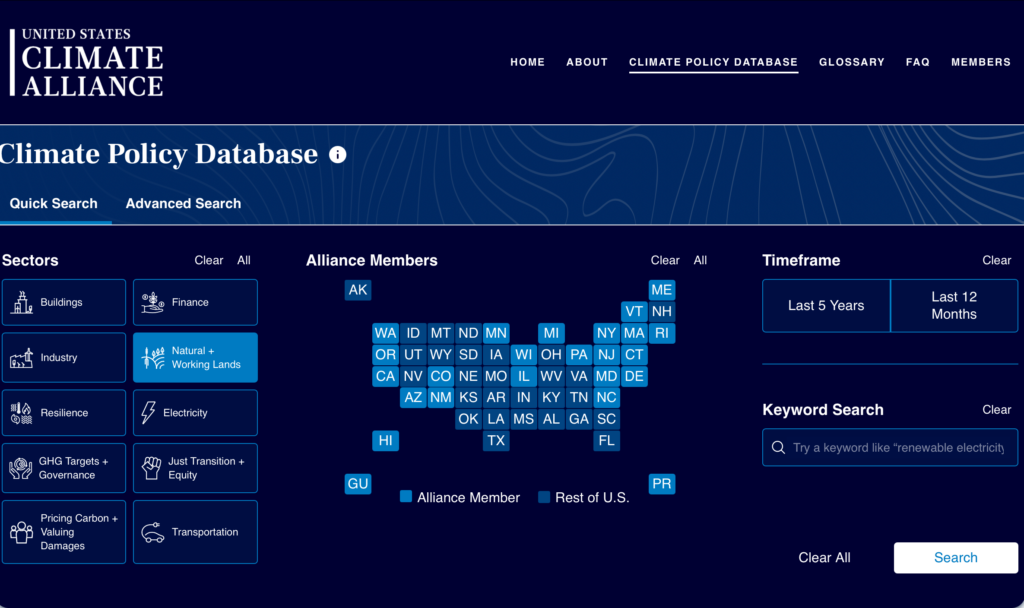
Explore U.S. Climate Alliance‘s Climate Policy Database.
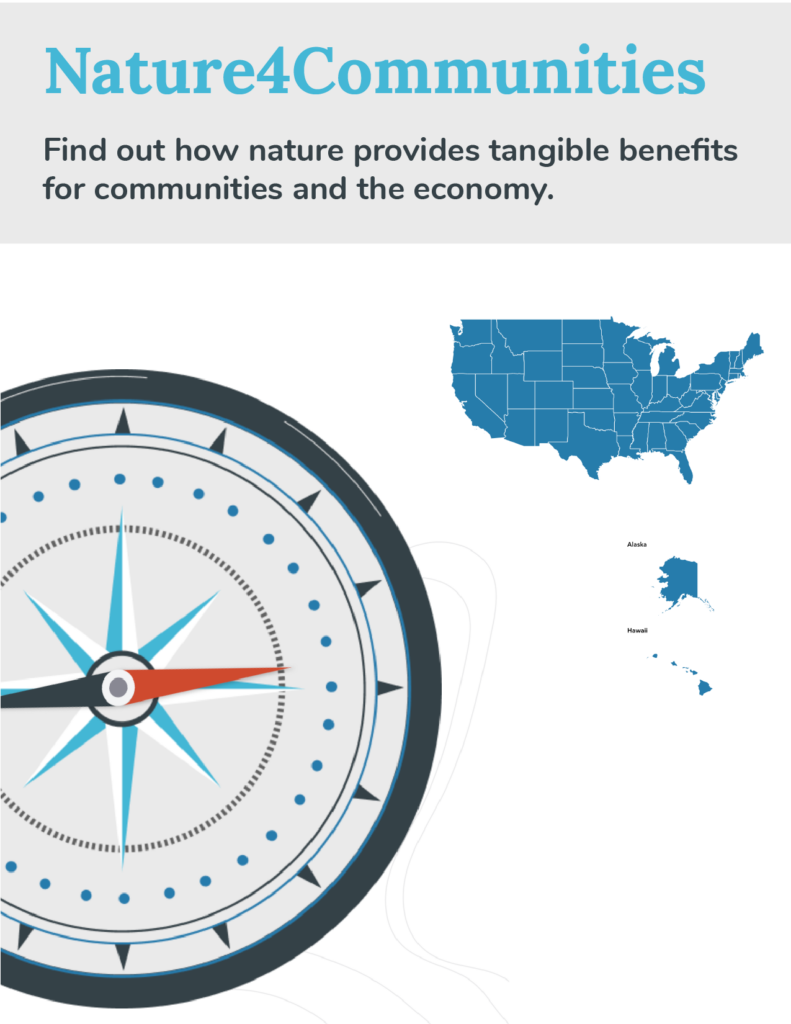
Explore Nature4Communities, a resource that shows you how nature-based solutions are critical for your community’s well-being and become a better advocate for their implementation.
